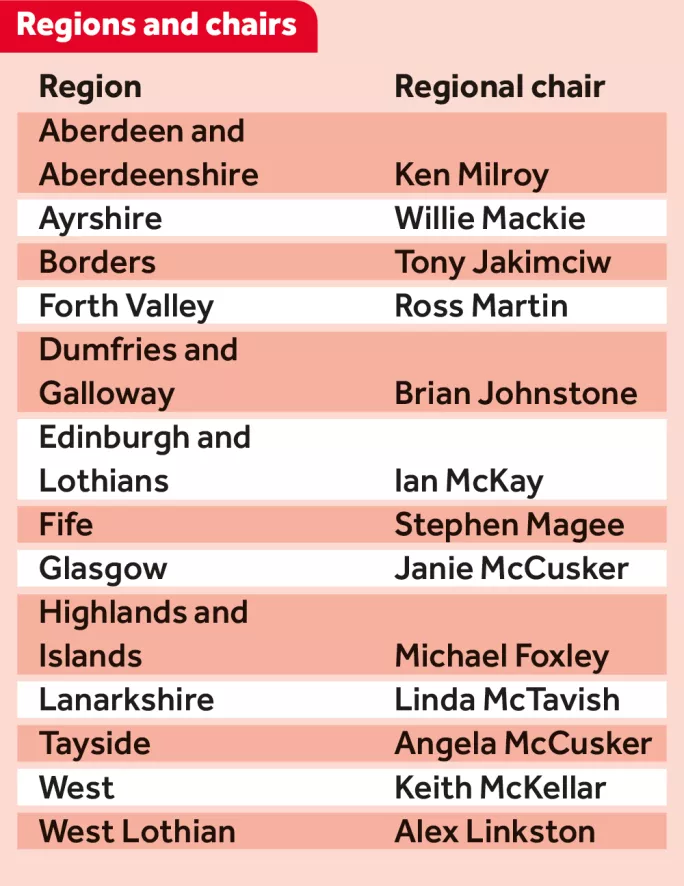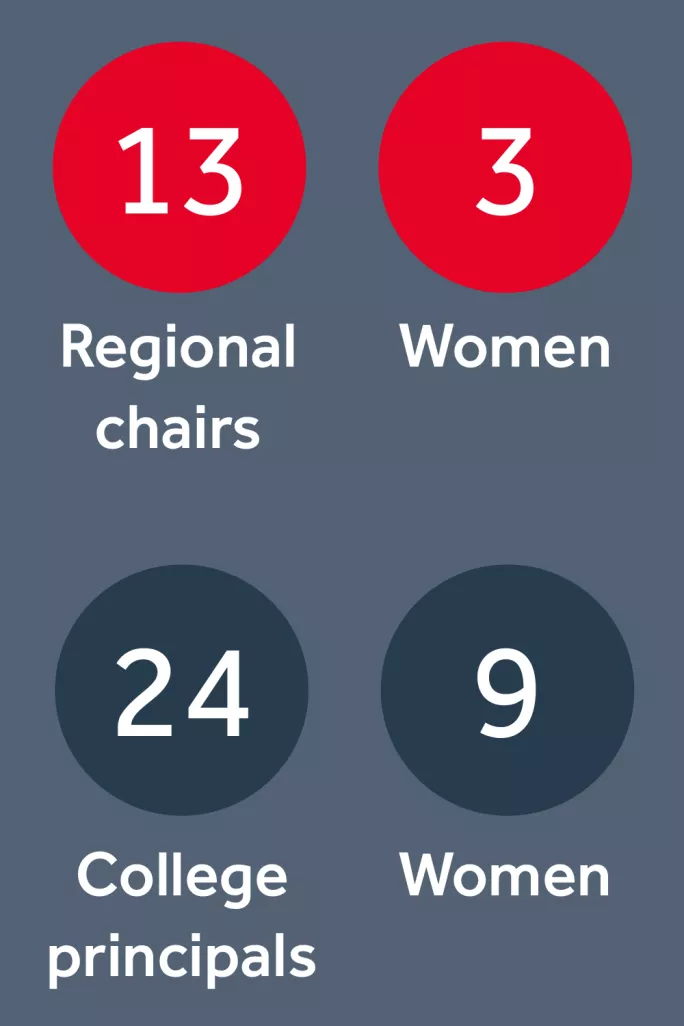‘College boards have to represent the population’

The Scottish Funding Council’s gender action plan is meant to boost gender equality on college and university courses, but at the very top of Scotland’s colleges, equality is a long way off. Of the 13 chairs of regional boards, only three are women.
But in an exclusive interview, FE minister Shirley-Anne Somerville says she is determined to tackle this as soon as possible. “College boards have got to represent the population of the region they are part of, so this is something I am actively looking at,” says Somerville.
“I will take every opportunity to move on that, because I would agree that the makeup - when you look at the gender split of college board chairs in particular - is nowhere near where I want it to be,” the minister adds.
The Scottish government last June introduced its Gender Representation on Public Boards Bill, which sets out that for a public board, the objective should be that “it has 50 per cent of non-executive members who are women”.
FE is not the only part of the education system where there is a significant gender gap. Last week, Tes Scotland revealed a disproportionate number of headteachers in secondary schools are male (“The glass ceiling is ‘firmly intact’ in school leadership”, 19 January).
Opportunity for change
Regional college chairs are appointed by the government - and Tes Scotland understands that a number of them will have their four-year term end this year. And although there is the option of their being re-appointed, Somerville says she plans to make sure the most is made out of opportunities to change the make-up of the group of chairs.
“We have already had that conversation with the different boards and with Colleges Scotland, so they know that this is an area that is a government priority and it is something which I am taking very seriously.”
Earlier this week, she wrote to the eight chairs up for re-appointment this year, stating she would do so, but for a staggered period of one to four years.

Speaking to Tes Scotland, she explains the way in which chair appointments come up limits the number of opportunities to change things, “so what we are looking at ensuring is that we take maximum advantage of every opportunity that we have had.
“I am looking to make sure we go above and beyond just what we have to do through the public appointment process to ensure that we are looking at representation from women, black minority ethnic communities and so on.”
She stresses that women can have considerable influence in the FE sector, if they are involved in it. “These are large organisations with substantial budgets, where you can play a real leading role in driving forward what is good in the economy and how you deliver for the local community.
Earlier this month, Somerville announced Janie McCusker as chair of the Glasgow College Regional Board. McCusker, who previously worked for the Organization for Security and Cooperation in Europe and the United Nations - and is a former principal adviser for security coordination for Unicef
- takes the number of female college chairs to three. She joins Linda McTavish in Lanarkshire and Angela McCusker in Tayside. Only last summer, the government made Ross Martin chair of Forth Valley College, replacing Hugh Hall, who is now principal of Fife College.

Somerville says that, following the reform of the sector, she holds its leadership in high regard. “I am really impressed with what goes on in our colleges - and I put both the principals and boards within that. We have dynamic principals who are looking at how their college role can further develop,” she explains.
“Whether you are in school looking at a foundation apprenticeship, whether you are in work and you are looking at taking part in some of the funding around flexible working, or whether you are at a college course to do FE or HE, this is a sector that is delivering across the board, regardless of what your background is, what age you are or what course you want to go on. And the principals and the boards can drive that change.”
Shona Struthers, chief executive of Colleges Scotland, says the sector is “fully committed to supporting gender equality - from the boardroom to the classroom”. She explains that the majority of principals and senior managers in colleges are female and the gender imbalance on college boards of management has reduced in recent years.
“However, we acknowledge that male college chairs remain over-represented,” she says. “We are keen to work with the Scottish government to ensure that this is addressed during the next round of appointments. It is essential that we build on existing good practice and work with others to achieve greater gender balance.”
You need a Tes subscription to read this article
Subscribe now to read this article and get other subscriber-only content:
- Unlimited access to all Tes magazine content
- Exclusive subscriber-only stories
- Award-winning email newsletters
Already a subscriber? Log in
You need a subscription to read this article
Subscribe now to read this article and get other subscriber-only content, including:
- Unlimited access to all Tes magazine content
- Exclusive subscriber-only stories
- Award-winning email newsletters